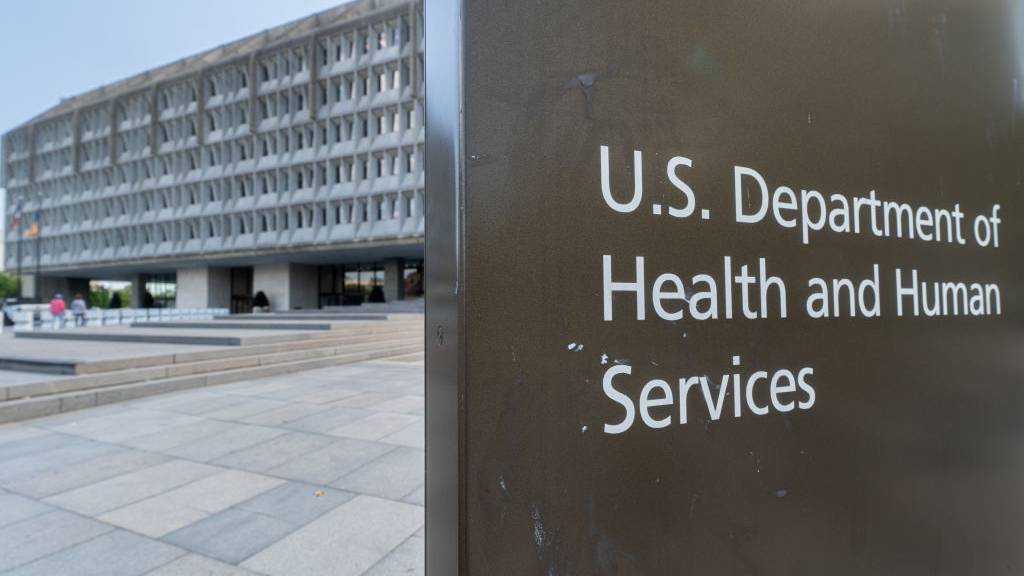Doctors, hospitals, and health insurers for weeks issued dire warnings to Republican lawmakers that millions of people would lose health coverage and hospitals would close if they cut Medicaid funding to help pay for President Donald Trump’s big tax and spending bill.
But Republicans ignored those pleas, made even deeper cuts, and sent the legislation to the White House on July 3, where Trump signed it the next day.
The law’s passage marked a rare political loss for some of the health industry’s biggest players. When unified, doctors, hospitals, and insurers have stood among the most powerful lobbying forces in Washington and have a long track record of blocking or forcing changes to legislation that could hurt them financially.
But health industry lobbyists are catching their breath and assessing the damage after Trump’s massive bill raced through Congress in less than two months with only Republican votes.
Several lobbyists offered various reasons for being unable to stave off big cuts to Medicaid, the $900 billion state-federal health insurance program that covers low-income and disabled people and accounts for 19% of all spending on hospital care. . But nearly all agreed that GOP lawmakers were more worried about angering Trump than facing backlash from local hospitals and constituents back home.
“Members were more scared of Trump issuing a primary challenge than disappointing local voters who may find their hospital has to close or their insurance premium may go up,” said Bob Kocher, a partner with venture capital firm Venrock who served in the Obama administration, referring to election primaries leading into the midterms coming in 2026.
Consider what happened to Sen. Thom Tillis (R-N.C.). After he took to the Senate floor to announce his opposition to the bill because of its cuts to Medicaid, Trump threatened to support a challenger to run against Tillis next year. Shortly thereafter, Tillis announced his retirement from politics.
The health industry’s warnings to lawmakers may have been dismissed because hospitals, health centers, and other health care provider groups are seen by Republicans as strong backers of the Affordable Care Act, the law known as Obamacare that’s considered Democrats’ biggest domestic achievement in decades.
The ACA expanded government health insurance coverage to millions of people previously not eligible. And no Republicans voted for it.
“Hospitals’ support of the ACA has frustrated Republicans, and as a result there is less a reservoir of goodwill to hospitals than in the past,” Kocher said.
Ceci Connolly, chief executive of the Alliance of Community Health Plans, said her lobbying team spent extra time on Capitol Hill with lawmakers and their staffers, raising concerns about how the legislation would imperil health care coverage.
“There was almost an overriding sense on the part of Republicans in Congress to deliver a major victory for President Trump,” she said. Her group represents health plans that provide coverage in about 40 states. “That superseded some of their concerns, reluctance, and hesitation.”
Connolly said she repeatedly heard from GOP lawmakers that the focus was on delivering on Trump’s campaign promise to extend his 2017 tax cuts.
She said the concerns of some moderate members helped lead to one concession: a $50 billion fund to help rural hospitals and other health providers.
The money, she said, may have made it easier for some lawmakers to support a bill that in total cuts more than $1 trillion from Medicaid over a decade.
Lobbying succeeded in some ways
Another twist: Many new lawmakers were clearly still learning about Medicaid, she said.
Republicans also seemed eager to reduce the scope of Medicaid and Affordable Care Act marketplace coverage after enrollment in both programs soared to record levels during the pandemic and the Biden administration, she said. Trump’s law requires states to verify eligibility for Medicaid at least every six months and ends auto-enrollment into marketplace plans — steps health policy experts says will reverse some of those gains.
Charles “Chip” Kahn, a longtime health lobbyist and CEO of the Federation of American Hospitals, which represents for-profit hospitals, said the industry’s message was heard on Capitol Hill. But because the bill dealt with so many other issues, including tax cuts, border security, and energy, lawmakers had to decide whether potential health coverage losses were more important.
It was very different than in 2017, when Republicans tried to repeal Obamacare but failed. Trump’s 2025 measure, Kahn said, isn’t a health reform bill nor a health bill.
It “left us with an outcome that was unfortunate.”
There were some successes, however, Kahn said.
Industry lobbying did prevent the federal government from reducing its share of spending for states that expanded Medicaid under the ACA. Hospitals and other Medicaid advocates also persuaded Congress not to cap the program’s open-ended federal funding to states. Both measures would have tallied billions more in additional Medicaid funding cuts.
The new law doesn’t change eligibility rules for Medicaid nor change its benefits. But it does stipulate that states require most Medicaid enrollees who gained coverage via the ACA’s expansion to document that they work or volunteer 80 hours a month, a provision the Congressional Budget Office predicts will lead to about 5 million people losing coverage by 2034.
Provider tax cuts delayed
The law also limits states’ use of a decades-old system of taxing health providers to leverage extra federal Medicaid funding. This was another loss for the hospital industry, which has supported the practice because it led to higher payments from Medicaid.
Medicaid generally pays lower fees for care than private insurance and Medicare, the program for people 65 and older as well as those with disabilities. But due to provider taxes, some hospitals are paid more under Medicaid than Medicare, according to the Commonwealth Fund, a health research nonprofit.
Kahn credits the Paragon Health Institute, a conservative think tank, and its CEO Brian Blase for pushing the argument that provider taxes amounted to legalized “money laundering.” Blase advised Trump on health policy in his first term.

